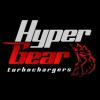Check Engine Light Rb25
Announcements
-
Similar Content
-
Latest Posts
-
Result of another R35GTR build. Similar specs as above except this is running our bigger size SS-2 profile option. Made similar power except this car runs on Pump 98 fuel. Build specs are: Nissan R35 GTR 2015 model stock engine and box. ETS street intercooler boost logi intercooler piping with tial bov, boost logi turbo inlet pipe ID 1050 injector DW 300C fuel pump Decatted oem down pipe and y pipe& HKS exaust 3inch intake pipe Upgraded actautors HyperGear SS-2 high flow option Final result is 639whp / 477wkws hubs, Ron 93 / P98 fuel at 20psi.
-
Duncan:- it affect both sides. Driver side is worse.
-
That seems like a very special issue! Does it affect both sides? Either way, I would disconnect the driver's side switch and see if it still happens, noting that might require removal of the whole door card which is a bit of a pain (it does on V37 and HY51)
-
MBS206:- The windows start to slowly open themselves. GTSBoy:- Battery is new since Dec.
-
I currently have a 2008 370GT Coupe, with the big brakes (Akebeno if I'm correct), and Its coming time to get new pads. Previously, I had a 2003 350GT Coupe with the stock sized brakes, not Brembos. I had custom wheels on it that were pretty open to the brakes, and when I first put the wheels on it, the rims where completely coated with brake dust. A few years after adding the new rims, I needed to change to pads on that car. I didn't do any research, but I told the mechanic of the problem with the brake dust. I also told him I didn't track the car or even drive around the streets harshley. But the dust was an issue. The mechanics changed the pads to a different compound, and the dust was GONE! The other change I noted was that when coming to a complete stop, instead of having to press harder on the pedal as I approached 0kph, I had to actually lift off a little to not come to a hard jerky stop.( My unfounded explanation is they became stickier as they heated by stopping ) Since I got my 370gt with big brakes, I noticed that that as I came closer to stopping, I had to press harder and harder to reach a full stop. I am not talking about hard, just harder. I brought the car in from another state, so when I had a blue slip done, I asked the mechanic what he thought of the brakes, and he thought they were brilliant. The only negative of these pads on the 350GT, was that they squealed when cold. So driving out of a shopping center carpark, it was a little embarrassing, as the brakes squealed, and I am sure people thought that I needed new brakes, when they were actually fresh. I have no idea of what type of compound they were on the 350gt, but whatever it was, I want to get the exact same on my 370GT. They weren't ridiculously expensive, and were replaced at the local JAX (which is no longer open), so I am certain they would be a pretty common big brand, off the shelf type/brand. My current mechanic suggested I need top get the rear pads changed soonish, but he suggested standard Brembo pads. Which I expect to behave the same as the current ones and not like the ones on the 350GT. I don't think dust will be an issue on the 370GT. With the behaviour I describe above on the 360GT, does anyone have a suggestion of pad material that will act like the change I had done on the 350GT?
-






Recommended Posts
Create an account or sign in to comment
You need to be a member in order to leave a comment
Create an account
Sign up for a new account in our community. It's easy!
Register a new accountSign in
Already have an account? Sign in here.
Sign In Now